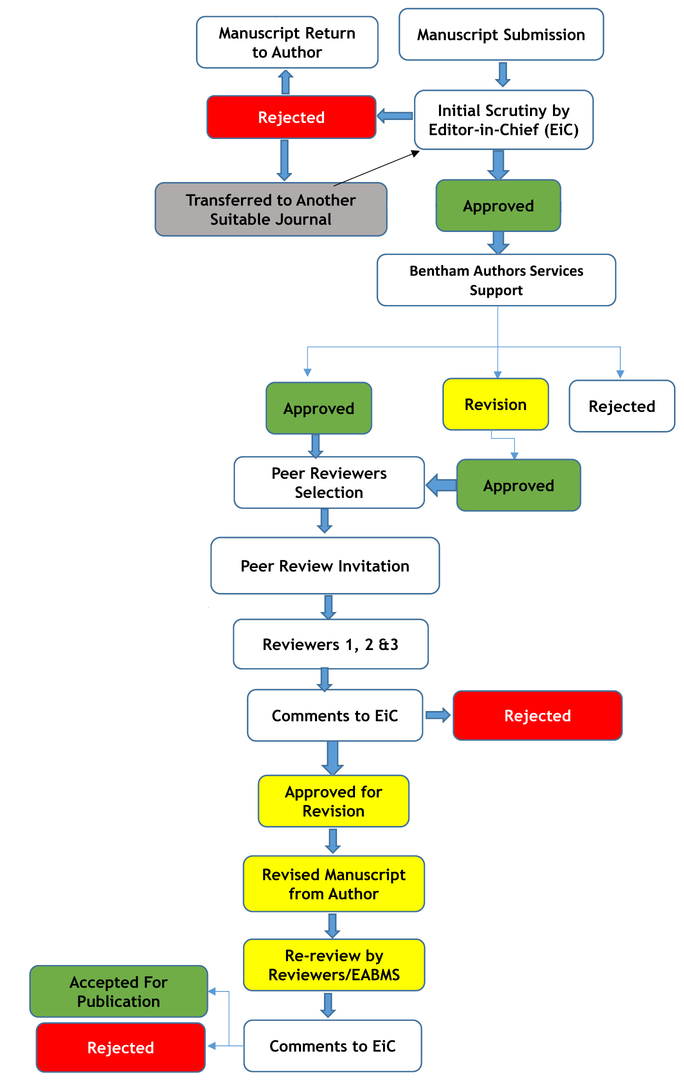PURPOSE OF A REVIEW
A review report provides the editor-in-chief/senior editor with an expert opinion on the quality of the manuscript under consideration. It also supplies authors with explicit feedback on how to improve their papers to make them acceptable for publication in the journal. Remarks that may help improve the quality of the manuscript are forwarded to the authors for their consideration.
HOW TO REVIEW
Reviewers are expected to provide advice on the following points in their review reports (depending on the type of article):
- Does the article lie within the scope of the journal?
- Is the manuscript written comprehensively? If not, how could it be improved?
- Have adequate proofs been provided for the declaration?
- Is this a new/ original contribution of significance?
- Does the paper offer enough details of its methodology to reproduce the experiments? In the case of experimentation on human subjects, has informed consent been taken?
- Has the author provided the approval from the local institutional review board? Or does the manuscript conform to the Helsinki Declaration on human experiments in the “Methods” section? For further details, please visit: https://openbiomaterialssciencejournal.com/research-ethics-policies.php
- Have the authors used the Reporting Guidelines, i.e., CONSORT, STROBE, PRISMA, STARD, CARE, EQUATOR, in their studies (if applicable)? For further details, please visit: https://openbiomaterialssciencejournal.com/standards-of-reporting.php
- Has the author obtained the approval of the institutional ethics committee regarding experimentation on animals or other species? Is the name of the species mentioned in the article's title, abstract, and methods section? For more details, please visit https://openbiomaterialssciencejournal.com/research-ethics-policies.php
- Bentham Open encourages authors to publish detailed protocols as supporting information online. Does any particular method used in the manuscript warrant such a protocol?
- Are figures/illustrations of appropriate quality?
- Is the sample size adequate for the study?
- What are the main findings of the paper?
- Is relevant work of other authors in the field appropriately acknowledged and comprehensive references given to the previous relevant literature?
During the review process, if reviewers find any scientific misconduct or fraud, plagiarism, conflict of interest, or any other unethical behavior related to the manuscript, they are expected to inform the editorial office immediately. Similarly, if they think that they are unable to review a certain section of the manuscript, then the editorial office should also be informed.
Reviewers are required to rate manuscripts on each of the above mentioned points along with their remarks for authors and editors. For further details, please review a sample evaluation form [Template Evaluation Form]. The authors are conveyed the comments of the reviewers, and given the opportunity to respond to them. In case the author does not agree with the comments of the reviewer, then the Editor-in-Chief may decide in the matter or the manuscript may be conveyed to additional reviewers for a decision. The identity of the reviewers is always kept strictly confidential.
Publishers recommend that reviewers review COPE Ethical Guidelines to provide quality unbiased review reports. Please read the complete guidelines at Committee on Publication Ethics available online.
BSP recommends its reviewers to strictly adhere to COPE guidelines to comply with the Principles of Transparency and Best Practice in Scholarly Publishing.
Please also refer to the COPE's most popular resources, i.e., core practices, flowcharts, eLearning courses, and cases (available at COPE’s website).



